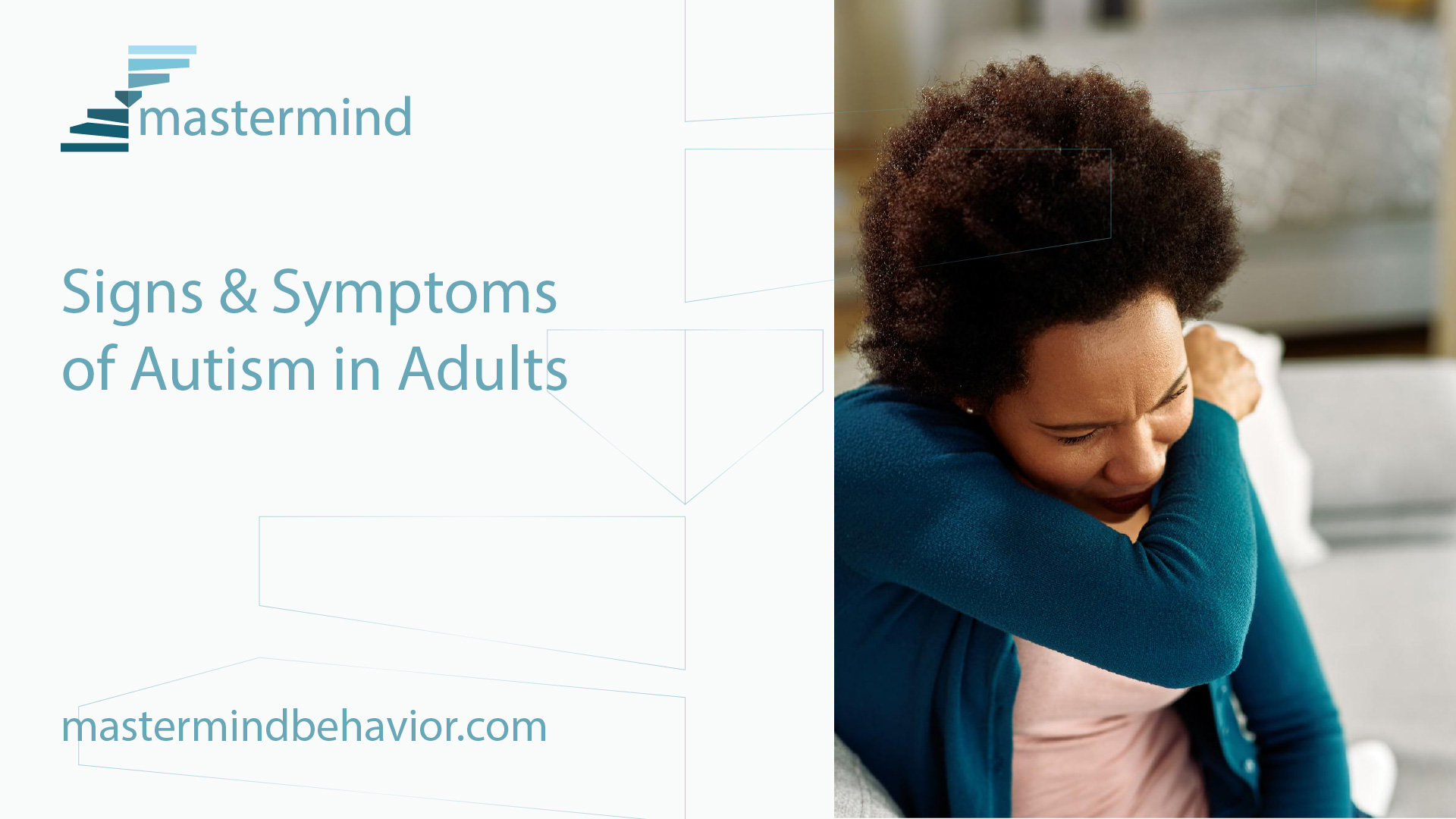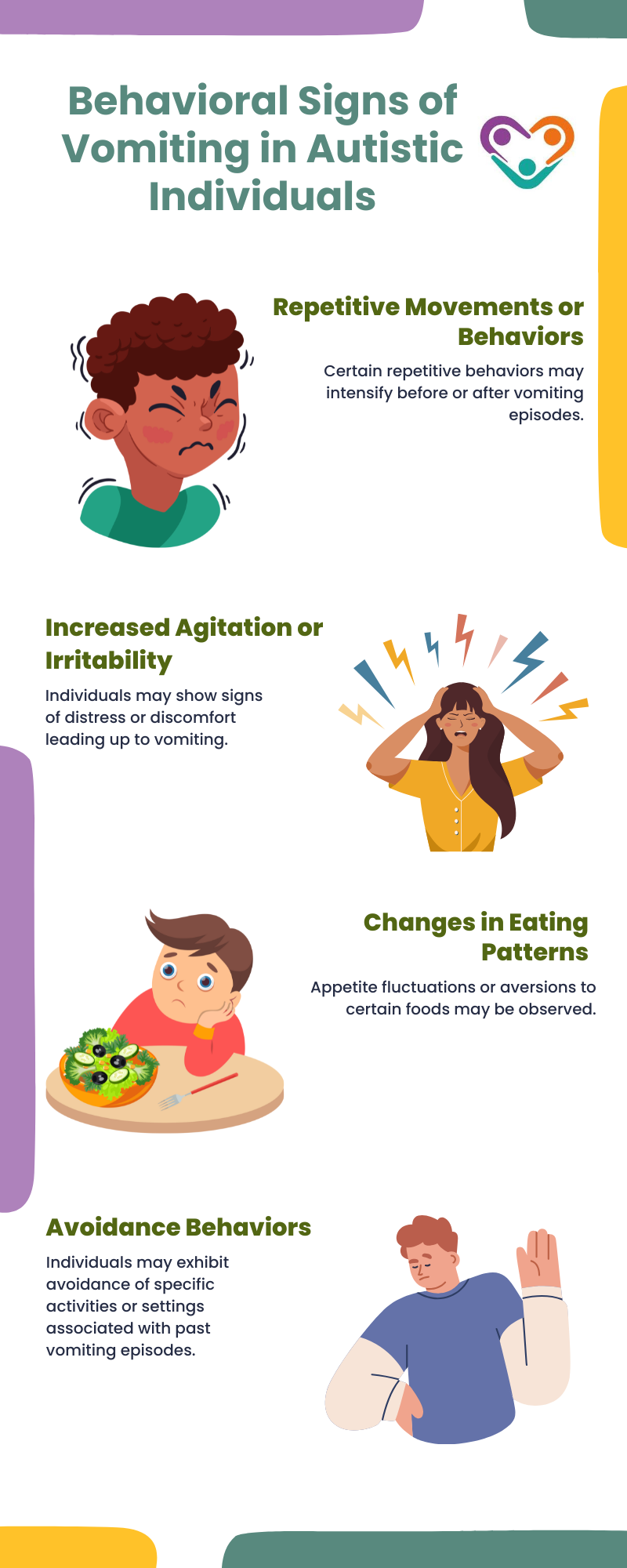Why routines matter benefit autistic individuals—according to an Autism Therapist
Why routines matter benefit autistic individuals—according to an Autism Therapist
Blog Article
Understanding the Effect of Behavioral Autism on Life and Social Interactions
You might not realize exactly how deeply behavioral autism influences daily life and social communications. People on the spectrum typically browse a world loaded with communication difficulties and sensory overload. These obstacles can lead to aggravation and seclusion, impacting their relationships and general health. Understanding these subtleties is crucial for promoting encouraging settings. What strategies can we apply to develop even more comprehensive areas and purposeful connections? The answers may amaze you.
Defining Behavior Autism and Its Features
Behavior autism, frequently referred to as autism range condition (ASD), encompasses a series of conditions characterized by challenges in social communication, interaction, and repeated habits. You may observe that individuals with ASD typically struggle to analyze social cues, which can result in misunderstandings in conversations. They might find it hard to develop eye call or engage in tiny talk, making social situations really feel frustrating.
Communication difficulties can manifest in different means, from delayed speech development to a preference for utilizing less words. By recognizing these attributes, you can promote a setting that advertises approval and motivates efficient communication, assisting people with autism grow in their everyday communications.
The Range of Autism: Comprehending Irregularity in Actions
Autism range disorder (ASD) isn't a one-size-fits-all diagnosis; it differs extensively among individuals. You might notice that some people with ASD show moderate signs and symptoms, while others may face much more considerable obstacles. This irregularity can materialize in actions, passions, and sensory level of sensitivities. You might come across people who are highly spoken and engage easily in discussions, while others could like singular activities or communicate non-verbally.
Additionally, the way people with ASD react to sensory input can differ significantly; some might be overwhelmed by loud sounds or brilliant lights, whereas others grow in boosting environments. The range additionally consists of differences in social interactions; some individuals might struggle to analyze social hints, while others navigate social setups with family member convenience. Recognizing this variability is crucial, as it assists you appreciate each individual's distinct experience and dressmaker support to their details demands, promoting a more inclusive environment for everyone.
Interaction Obstacles Encountered by Individuals With Autism
When you communicate with people on the autism range, you may observe their distinct communication challenges. They frequently encounter troubles with both spoken and nonverbal hints, which can affect their social interactions. Understanding these obstacles is necessary for fostering much better links and assistance.

Verbal Interaction Problems
Lots of individuals on the autism spectrum experience spoken interaction difficulties that can significantly influence their everyday interactions. Your rate, volume, or tone may not align with social assumptions, creating others to misinterpret your objectives. Identifying these obstacles can assist you and your support network establish techniques to improve interaction and promote much better connections with others in your daily life.
Nonverbal Communication Barriers
Spoken communication isn't the only obstacle individuals on the autism range face; nonverbal interaction barriers can be simply as substantial. These challenges can lead to misconceptions or false impressions of social hints, making communications really feel overwhelming or complex. By attending to nonverbal communication, you can find methods to enhance your social experiences and enhance your overall top quality of life.
Social Interaction Effects
Social communications can typically really feel overwhelming as a result of the special interaction obstacles faced by people with autism. You could have problem with translating social signs, making it hard to comprehend mockery or body language. This can cause misconceptions or uncomfortable moments in conversations. Furthermore, launching and maintaining discussions may really feel challenging, triggering anxiousness in social scenarios. You may prefer structured environments, making spontaneous interactions uneasy. It's additionally usual to experience trouble in taking part in little talk, which can prevent forming new friendships. Identifying these difficulties can aid you discover methods to boost communication, such as practicing social abilities in safe setups or using visual help - Autism Spectrum Therapies. Recognizing your needs permits you to navigate social interactions with better confidence and ease.
Social Interaction and Partnership Building in Autism
While structure partnerships can be testing for individuals with autism, comprehending their distinct perspectives and communication styles can cultivate meaningful connections. You might observe that lots of individuals on the range like direct communication and may deal with social hints or small talk. By being straightforward in your communications, you can help create an environment where they really feel comfy.
Make the effort to listen and observe how they share themselves. This understanding can lead you in steering conversations better. Taking part in shared passions can likewise act as a bridge to deeper connections. Whether it's a hobby, a favored show, or a shared enthusiasm, these common strings can open up doors to relationship.
Life Regimen: Navigating Difficulties and Methods
Steering day-to-day live routines can be specifically testing for individuals with autism, specifically when unanticipated modifications occur. You could find comfort in having a structured routine, as it aids you anticipate what's following. When disruptions occur, it's normal to really feel anxious or overwhelmed. To browse from this source these obstacles, take into consideration implementing aesthetic timetables or checklists. These tools can supply quality and confidence.
Establishing a regimen that consists of sensory breaks can likewise be valuable. You can prepare brief breaks throughout your day to recharge. It's important to connect with those around you, letting them understand your demands and choices. This aids develop an understanding atmosphere.
Finally, look these up method mindfulness methods to take care of stress and anxiety and anxiety. Straightforward breathing exercises or basing techniques can make a substantial difference. By including these strategies, you can boost your day-to-day regimen and lessen disruptions, making life really feel much more manageable.
Staminas and Capacities of Individuals on the Autism Range
Understanding day-to-day life routines is simply one aspect of the autism experience. Numerous individuals on the autism range have amazing strengths and abilities that set them apart. You could discover that your focus to information is remarkable, enabling you to succeed in tasks that require precision and emphasis. Your ability to assume outside package can lead to cutting-edge solutions in different scenarios.
Furthermore, your memory abilities commonly radiate, specifically in locations of passion. Autism Therapist. This flair for preserving information can make you a valuable resource in areas like art, science, or innovation. You may additionally exhibit strong visual reasoning, allowing you to envision intricate principles and resolve troubles artistically
Furthermore, your one-of-a-kind viewpoint on the world can promote compassion and understanding in others, improving social communications. Accepting these strengths not just increases your self-confidence yet additionally assists others value the diverse talents you bring to the table.
Developing Comprehensive Environments for People With Autism
Producing comprehensive settings for people with autism starts with developing sensory-friendly areas that cater to their unique needs. You can additionally cultivate possibilities for social interaction, helping to construct connections and friendships. By making these adjustments, you'll add to a more inviting environment for everybody.
Creating Sensory-Friendly Spaces
While developing sensory-friendly areas, it's important to mirror on the special demands of individuals with autism. Include silent areas where people can recharge and retreat when bewildered. Consist of aesthetic timetables or clear signs to help individuals browse the area confidently.
Promoting Social Communication Opportunities
Designing sensory-friendly spaces not only addresses individual comfort yet additionally establishes the stage for purposeful social communications amongst people with autism. To promote these communications, create inclusive environments that welcome involvement. Organize structured activities, like art classes or team games, that encourage partnership without weblink frustrating sensory input. Use aesthetic aids and clear interaction to assist everyone engage conveniently. Motivate peer mentoring, pairing people with autism with supportive peers who can lead them with social circumstances. In addition, take into consideration organizing routine community occasions that commemorate neurodiversity, cultivating acceptance and understanding amongst all participants. By carrying out these approaches, you can boost social possibilities, assisting people with autism build relationships and strengthen their social skills in a risk-free, welcoming setting.

Frequently Asked Questions
Just How Can Pals Support Someone With Behavioral Autism?
You can sustain a close friend with behavioral autism by being patient, listening actively, and appreciating their boundaries. Take part in activities they enjoy, communicate honestly, and develop a comfortable setting where they really feel valued and understood.
What Resources Are Offered for Parents of Kid With Autism?
You can check out numerous sources for moms and dads of youngsters with autism, consisting of assistance teams, academic web sites, and local social work. Getting in touch with various other moms and dads can likewise give beneficial insights and shared experiences to help navigate challenges.
Can Behavioral Autism Modification In Time?

Yes, behavioral autism can alter in time. You could see shifts in communication, social skills, and habits as your kid expands. Early treatment and support typically play essential duties in these developmental adjustments.
Just How Do Sensory Sensitivities Influence Day-to-day Live?
Sensory sensitivities can make everyday experiences frustrating. You might battle with loud noises or intense lights, leading to anxiety or evasion. Finding atmospheres that accommodate your requirements can significantly boost your comfort and overall day-to-day live.
What Are Typical Misconceptions Regarding Behavioral Autism?
You could think behavior autism just affects communication skills, however it's even more complex. Lots of assume individuals do not have compassion or intelligence, which isn't true. Recognizing these misconceptions helps foster acceptance and support for those on the range.
Behavioral autism, usually referred to as autism spectrum condition (ASD), includes a range of problems defined by obstacles in social communication, communication, and repeated habits.Social communications can typically really feel frustrating due to the one-of-a-kind communication difficulties encountered by individuals with autism.Creating sensory-friendly areas not only addresses individual comfort but likewise establishes the stage for purposeful social communications among people with autism. Urge peer mentoring, coupling people with autism with supportive peers who can assist them through social scenarios. By applying these methods, you can boost social chances, assisting people with autism build friendships and reinforce their social skills in a safe, inviting environment.
Report this page